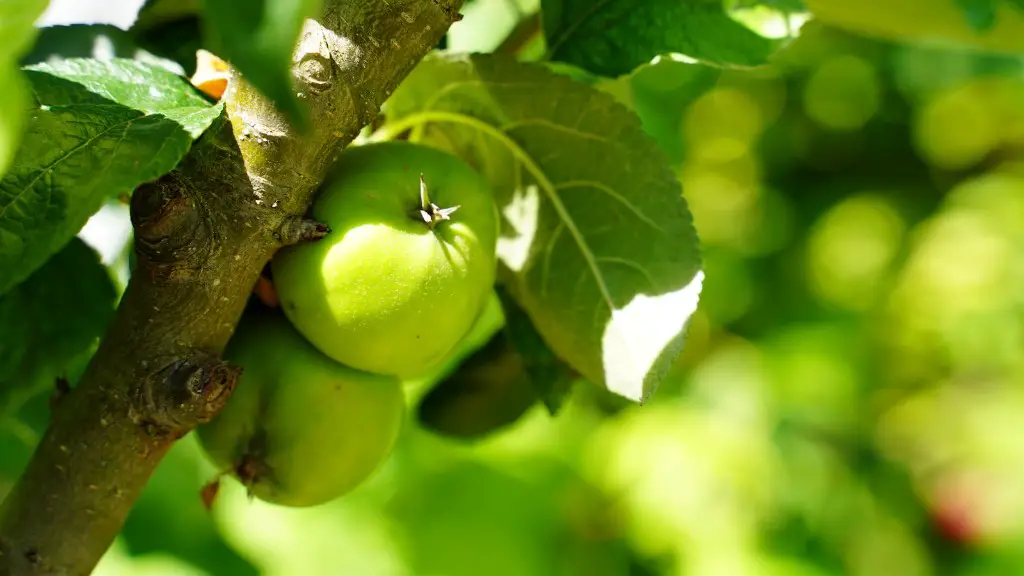How to Treat Spider Mites on Lemon Trees:
Spider mites can damage the leaves and buds of lemon trees, leading to reduced fruit production and tree health. By recognizing the symptoms and taking action, gardeners can help protect their trees and prevent further damage. This article will discuss the steps to effectively treat spider mites on lemon trees.
Firstly, gardeners can identify spider mites by looking for fine webbing on the leaves and branches of their lemon trees. The mites themselves are tiny, reddish-brown or yellowish-brown in color. They can also be seen moving around the leaves. Gardeners can also take a sample of leaves to a garden center for identification.
Once identified, gardeners can begin treatment. Natural solutions first of all should be considered, such as introducing predatory mites, as these mites feed on spider mites and can reduce their population. Other natural solutions include using horticultural oil and a homemade garlic solution. These solutions are safe for humans and the environment, but must be applied carefully so as to not damage the tree.
If natural solutions are unsuccessful, gardeners should then look to chemical solutions. Before applying any chemicals, it is important to read the label carefully, and follow the instructions precisely. Only use chemicals labeled for lemon trees. Applying chemicals too frequently or in too high a concentration can damage the tree, so caution must be taken.
Finally, prevention is the most effective way to protect a lemon tree from spider mites, so it is important to take steps to reduce their populations. Good cultural practices such as regular pruning, watering, fertilization and sanitation can help. Using insecticidal soaps and other natural solutions can also help reduce the mite population.
Cultural Practices to Prevent Spider Mites on Lemon Trees
When it comes to caring for lemon trees and protecting them from spider mites, cultural practices should be the gardener’s first priority. Regular pruning is essential, as it helps to remove dead and diseased branches, as well as to encourage healthy, new growth. Pruning also helps to maintain airflow between the branches, aiding in the prevention of spider mites.
It is also important to water the trees regularly. Poor watering practices can lead to stress and make the tree more susceptible to pests. Watering deeply, once or twice a week in the morning, is recommended, especially during hot and dry days.
Additionally, fertilizing the tree can help to maintain healthy growth. Lemon trees need a balanced fertilizer, with equal parts nitrogen, phosphorus and potassium. An easy way to remember this is N-P-K. Fertilizer should be applied either every three to four weeks, or every two to three months, depending on the type of fertilizer used and the amount of rain received.
Finally, gardeners should practice good sanitation. This means removing any fallen leaves or debris on a regular basis. Additionally, they should check their trees often for any signs of pests or disease, so they can take action quickly before there is any serious damage.
Organic Products To Fight Spider Mites On Lemon Trees
Organic products are an effective way to fight spider mites on lemon trees. There are several products on the market that are labeled as safe for lemon trees. The most popular of these are horticultural oil and insecticidal soaps.
Horticultural oil is a petroleum-based product. It smothers and suffocates the mites, and can be used as a preventive measure, as well as a treatment. Insecticidal soaps are a more natural solution. These products work by breaking the surface tension of the mites, which causes them to dehydrate and die.
Other organic products include bifenthrin and neem oil. Bifenthrin is a synthetic insecticide that is effective against mites and other pests. Neem oil, on the other hand, is a natural insecticide made from the neem tree. Both of these products are labeled as safe for lemon trees, but caution should be taken when applying them.
Finally, gardeners can also look to garlic as an organic solution. Garlic can be made into a spray by adding crushed garlic cloves to water, and adding a few drops of dish soap. This solution should be sprayed onto the leaves of the trees every few days. However, it is important to remember that garlic can damage young trees, so take care when using it.
Predatory Mites To Control Spider Mites On Lemon Trees.
Predatory mites are a natural solution to controlling spider mites on lemon trees. They are small mites that feed on other mites, and are an effective way to reduce their population. These mites can be purchased from garden stores and online retailers.
Once purchased, predatory mites should be released on the trees. It is best to do this in the evening when temperatures are lower. The mites should be released in multiple spots on the tree, and as close to the spider mite infestation as possible. The beneficial mites should then be monitored to assess their effectiveness.
Predatory mites can also be purchased as a dormant spray. This is a solution that is sprayed onto the tree when it is dormant. The solution contains predatory mites that become active when the tree is warmed by the spring sun. This is a helpful way to keep spider mites away, as the beneficial mites will become actively seeking out spider mites as soon as the tree begins to grow.
It is important to note that predatory mites can be effective only when temperatures are suitable and when the spider mite population is not too high. High temperatures, cold temperatures, and large populations of spider mites can prove too much for the predatory mites, so caution should be taken when using them.
Chemicals For Treating Spider Mites On Lemon Trees
Chemicals can be a useful tool for treating spider mites on lemon trees, but care should be taken when using them. Before using any chemical, it is important to carefully read the label. It should be labeled for use on lemon trees, and the application instructions should be followed precisely.
Common chemical treatments for spider mites on lemon trees include insecticidal soaps, bifenthrin, and abamectin. Insecticidal soaps are a non-toxic, organic solution, and are typically used in combination with other treatments. Bifenthrin is a synthetic chemical and is generally more effective than insecticidal soaps. Abamectin is another synthetic product and is most effective when used to spot treat the tree.
It is important to note that chemicals should not be used too frequently or in too high a concentration, as this can damage the tree. Also, when applying chemicals, it is important to use protective clothing, as these products can be toxic to humans. Similarly, caution should be taken with any chemicals that are stored on the property.
Preventive Measures For Spider Mites On Lemon Trees
The best way to protect lemon trees from spider mites is to take preventive measures, rather than waiting to treat them. This can include planting landscape plants that discourage mites, such as marigolds or lavender, and making sure the trees are getting proper watering and fertilizer. Good sanitation is also essential, as any fallen leaves or debris should be removed from the tree.
Insecticidal soaps and other natural solutions should also be used for preventive purposes. These products can help to reduce the mite population, and should be applied regularly, according to the directions on the label. Similarly, releasing beneficial predatory mites can also be a valuable preventive measure, as these mites can help to control the spider mite population.
Finally, gardeners should be sure to check their trees regularly for any signs of pests or disease. The sooner any problems are spotted, the easier they are to treat, and the less damage they will cause to the tree. Regularly checking the leaves of the trees can help gardeners to detect any mite infestations before they become out of control.



